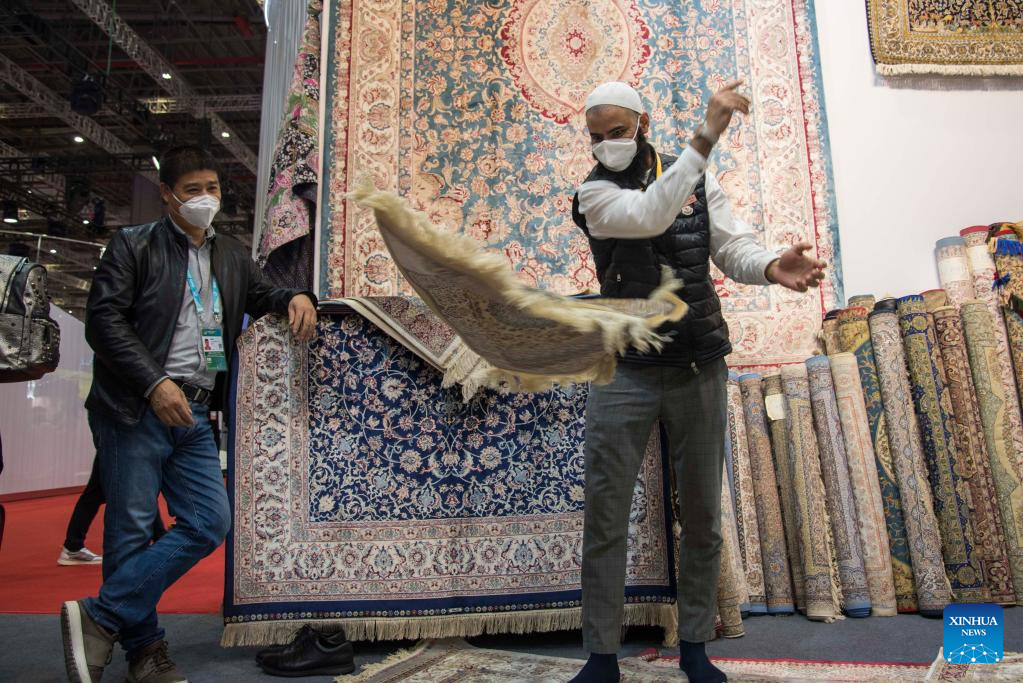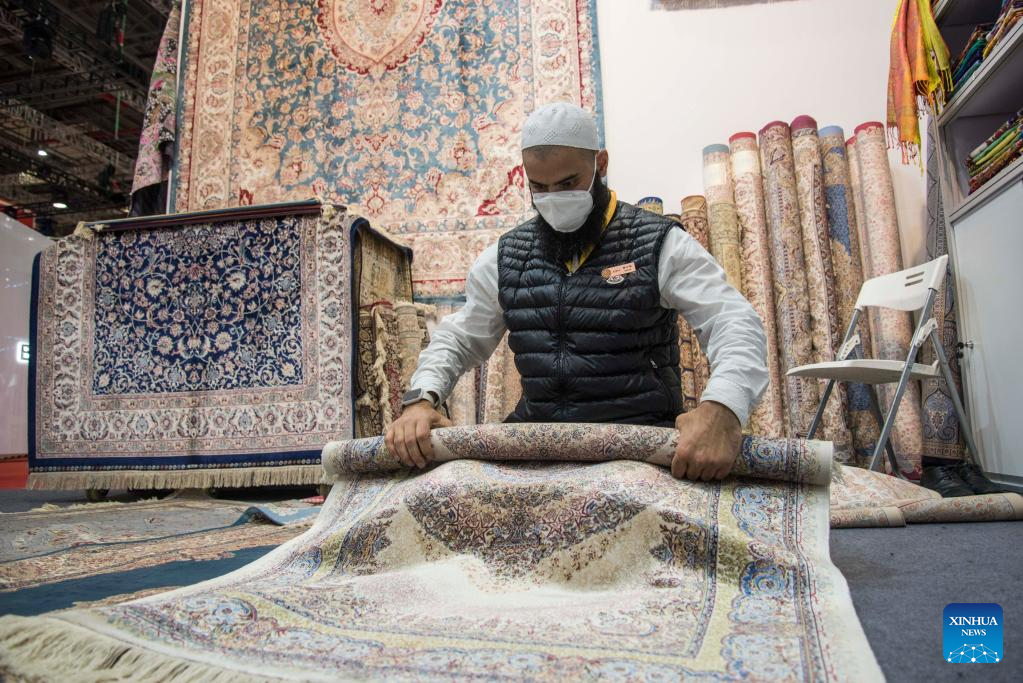(CIIE) Feature: Indian carpet dealer keen to tap deeper into Chinese market
 0 Comment(s)
0 Comment(s) Print
Print E-mail Xinhua, November 10, 2022
E-mail Xinhua, November 10, 2022

Imran Rah (R) , a carpet dealer from India, demonstrates his carpet at the consumer goods exhibition area of the fifth China International Import Expo (CIIE) in east China's Shanghai, Nov. 8, 2022. (Xinhua/Bu Duomen)
Imran Rah (R) , a carpet dealer from India, demonstrates his carpet at the consumer goods exhibition area of the fifth China International Import Expo (CIIE) in east China's Shanghai, Nov. 8, 2022. (Xinhua/Bu Duomen)
SHANGHAI, Nov. 9 (Xinhua) -- When Imran Rah joined the inaugural edition of the China International Import Expo (CIIE) in 2018 he set up a relatively small 18-square-meter booth to display his products.
This year, however, was different for him at the fifth CIIE, as the cashmere carpet dealer from India has expanded his presence to three booths spanning nearly 100 square meters.
Rah's participation at the CIIE for five consecutive years has resulted in a substantial number of repeat clients, as he continues to broaden his product range and improve the quality.
"China is a huge market with great potential for handmade cashmere and silk carpets, and cashmere shawls. The CIIE helps profoundly to boost brand recognition, and brings quality clients from across the nation," Rah said.
"It could take a whole year to develop relations with new clients we get from a single attendance at the CIIE," he added.
In 2013, Rah launched his own hand-woven carpet brand. Since entering China in 2014, the brand has expanded its footprint, with stores opening in megacities such as Hangzhou, Shanghai and Beijing.
Rah said he is doing business in many other countries, but to him "China is the most important market."
Pointing to a carpet measuring about 2 or 3 square meters, Rah said it takes at least six months for two skilled artisans to make such an exquisite carpet, noting that it is a labor-intensive process requiring exceptional artistry.
The target market for handcrafted cashmere or silk carpets is quite selective due to the high costs, Rah said, adding that he has seen many craftsmen in his hometown leave this line of business due to income instability.
He has established long-term partnerships with over a thousand craftsmen from his hometown, purchased their products and consequently helped boost their standard of living.
"The sale of one fine handmade silk carpet can financially support a household for six months or even a year," Rah said.
Customer expectations for product quality are high due to the CIIE's prominence and scale, and goods that meet these standards are more likely to be well received, Rah said. "This is also good for passing on the craftsmanship of carpets."
The success in the Chinese market has bolstered Rah's sense of responsibility. He has provided financial assistance to struggling artisans and their children as well as offered donations to several schools back home.
"The CIIE calls for sharing development opportunities. I hope that just like me, they are also given the opportunities to fulfill their dreams," Rah said.

Imran Rah, a carpet dealer from India, arranges his carpet at the consumer goods exhibition area of the fifth China International Import Expo (CIIE) in east China's Shanghai, Nov. 8, 2022. (Xinhua/Bu Duomen)


